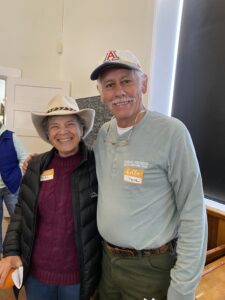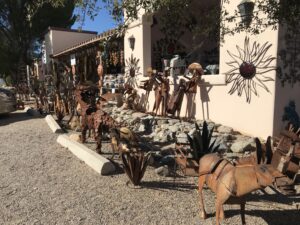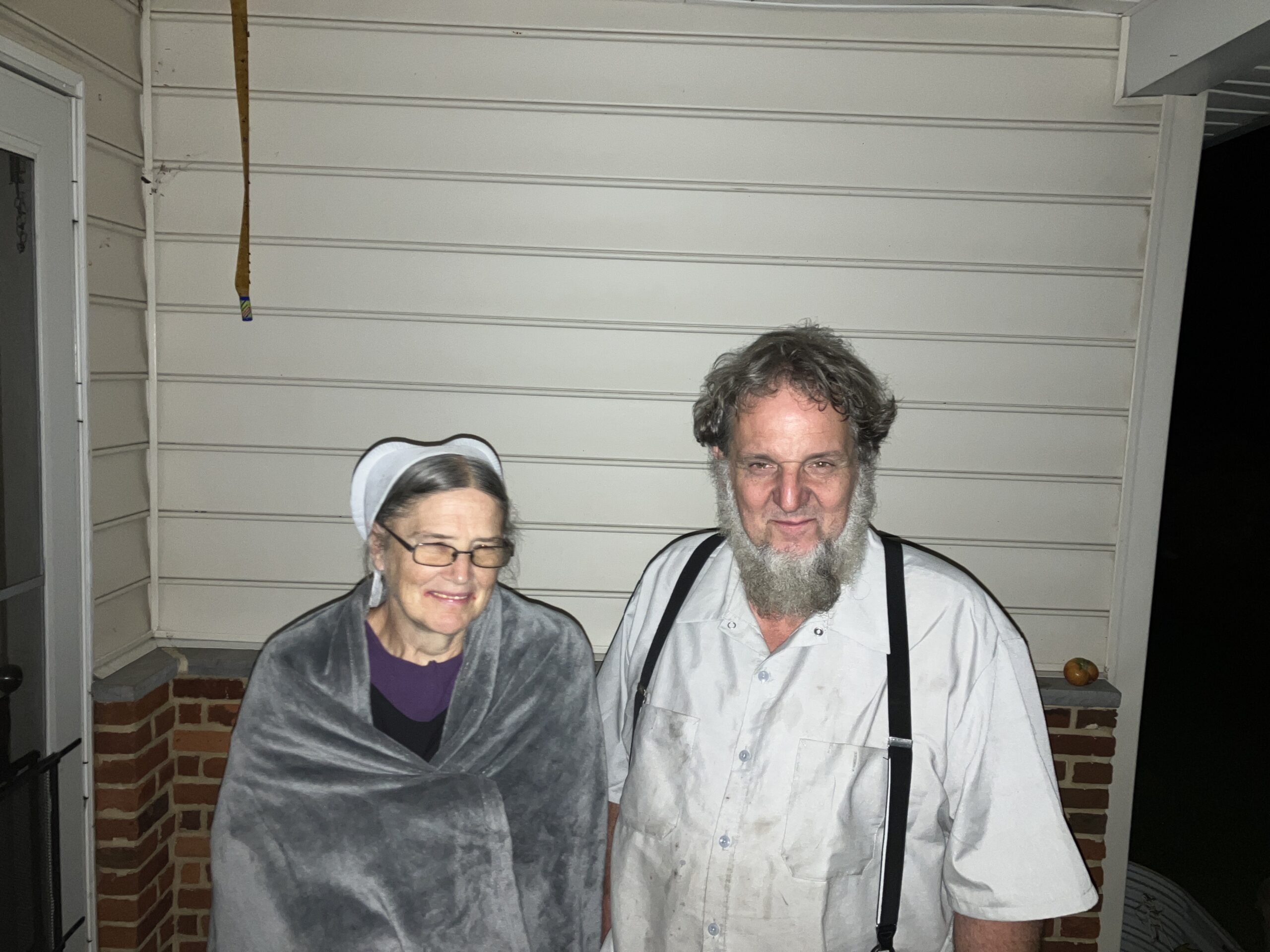 Tubac, Arizona is just 25 miles from the Mexican border. For centuries it has been at the heart of the borderlands, rich in multicultural traditions and influences. Over time the border itself has been fluid, ephemeral, and often arbitrary. Currently, this area of the border is one of the most active in terms of commerce, cross border interactions, and also drugs and immigrants. I got to sit down with two thoughtful members of the regional community. They don’t agree on everything, but their shared respect allows them to listen to each other’s ideas, even when the topics can be highly personal.
Tubac, Arizona is just 25 miles from the Mexican border. For centuries it has been at the heart of the borderlands, rich in multicultural traditions and influences. Over time the border itself has been fluid, ephemeral, and often arbitrary. Currently, this area of the border is one of the most active in terms of commerce, cross border interactions, and also drugs and immigrants. I got to sit down with two thoughtful members of the regional community. They don’t agree on everything, but their shared respect allows them to listen to each other’s ideas, even when the topics can be highly personal.
Steve Gastellum has ancestral roots here in Tubac, but he grew up with a father who worked in the National Park Service, where Steve had a long career as well. Andi Miritello is from a family of Italian immigrants; she fell in love with the area and recently moved to Tubac from New York. She runs the Tubac Historical Society.
Steve: “My family were original homesteaders. They came here starting in 1888. They were Basque, from the Pyrenees, who had emigrated to Sonora, Mexico. When the land here was opened up for homesteading, my grandfather realized that this is a really good valley, good rainfall. It was required that in order to get a homestead you had to become an American citizen. So my grandfather, and great-grandfather took the steps to become citizens.”
Andi: “People in this area have tried to work together because it’s such a difficult place to live. There was a lot of mixture between people, the native, Mexican, and the Spanish originally. Tubac has born and died about seven times, built up and then almost deserted, and then built up again; there’s some kind of resilience here that just brings people back. “
Steve: “As the Anglos moved into these territories, and then states, Mexican and Spanish homesteaders were thrown off the land, and their land was given to the Anglos. During this time of dispossession, you were forced off your land at gunpoint, and you lost everything. Or you could stay on and work the land for a new owner. But many of these people were too poor to start over. So they left the area entirely. Some families became migrant farmworkers chasing crops in California, Oregon, Washington and other places. “
“Now, with the older Hispanics, I sense that there’s still some resentment especially with the takeover of the land. It’s not to say that people don’t work and live together harmoniously, because there’s a lot of that going on. More with the younger group than the older.”
 Andi: “What I absolutely love about the area is the Mexican culture, the families, and the politeness, the respect. Of course, in every group, there’s people who aren’t like that. I feel like the majority of the Anglos have neglected some of the Hispanic traditions that were important, what makes this area really wonderful because of this very rich culture.”
Andi: “What I absolutely love about the area is the Mexican culture, the families, and the politeness, the respect. Of course, in every group, there’s people who aren’t like that. I feel like the majority of the Anglos have neglected some of the Hispanic traditions that were important, what makes this area really wonderful because of this very rich culture.”
Steve: “I live with a horrible interaction with border crossers. We live on one acre of land and it’s fairly isolated. Several years ago, I could count three to four times a week, about 3:00 o’clock in the morning, I’d hear our water faucet go on, then I’d look out my bedroom door window. And there would be anywhere from five to eight illegals. Big backpacks, all black. Their water jugs were black. I knew they were carrying guns. And they were all packing drugs.”
“One day my son was doing some yard work behind our house. An illegal with a rifle came up behind him, tapped him on the shoulder and says, “We want food and we want water.” My son Dan says “Okay, I’ll go ask my parents.” So he walked to the house, and he says “Dad, there’s two illegals out in the backyard that are demanding food and water or they won’t go away.” I looked in the backyard, got my phone, called the Border Patrol, and they vanished. We had a border patrol agent killed not a quarter mile from my house. It is bad.”
Andi: “Nobody feels sympathetic with the drug runners; that’s terrible. But I think of some of the people trying to come across, God, anybody who’s going to risk their life going through those mountains, they have to be pretty darn desperate to get away. Something should be done to help them. I mean, that’s an awful situation. W have a boarder where we need some kinds of free movement back and forth, where you’ve got kids living in Sonora, going to Nogales High School, and then they go back at the end of the day. Some of us go down to Mexico for the dentist or for the restaurants.”
Steve: “My grandparents and great-grandparents went through the immigration system legally. They did everything that they needed to do to become a citizen of the country. They worked hard, they lived on the land, they sacrificed a great deal, only to lose it when they were kicked off their land by the Anglos. In my family, on both sides, we are against illegal immigration, because there is a system that we’ve got to utilize, in fairness to all the other people that have done this the right way. I am against the free flow of people across borders.”
Andi: “Some people don’t have the resources to do it. But yet they feel threatened in their homes, they feel threatened in their jobs, their kids are being threatened, and they just want to get away to get a better life. Now, I don’t think illegal immigration is a good idea. That’s never a good idea. There is plenty of opportunity for people, plenty of jobs to be had, plenty of things to be done. If our government could just get it right and say, ‘Hey, let’s stop using these people as political footballs’.”
“I think we just have to respect each other, listen to each other. Steve and I have different views on something like the immigration problem, but we agree on a lot also. We have had different experiences. I respect and admire what he’s done in his life. I think the media on both sides really stokes the fires, you know, ”Let’s get everybody upset; let’s get everybody mad.’ We’re all looking for the same thing. Ultimately, all of us just want a good life, for us and for our families, and we want to get along and feel like we’re safe. If we all would think of that first and then figure out okay, what can we do? Let me take some of your ideas. Talk to each other. That’s the only way that this is going to work.”












Leave A Comment